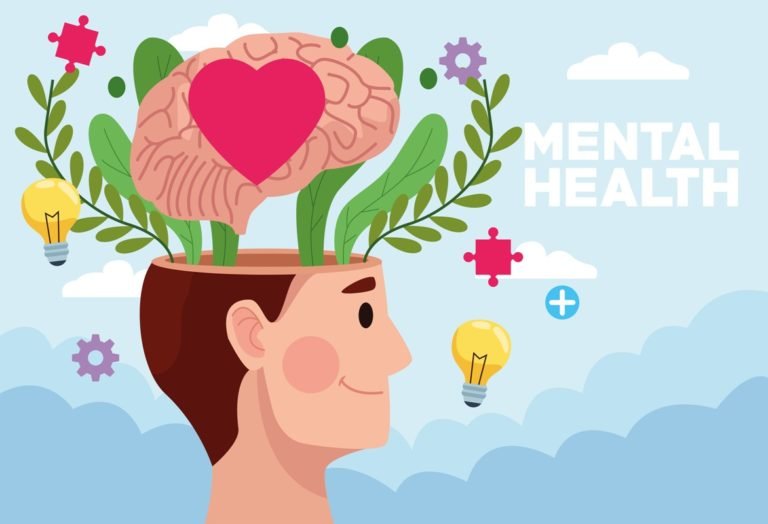Why Toxic Positivity Can be Harmful?
Uncover the truth about Toxic Positivity. Explore how excessive optimism can invalidate genuine emotions and learn to balance positivity with authentic support and understanding.

Positive Vibes… the words itself makes you feel good, brings a lot of positive energy and create healthy emotions. It is important to have a positive mindset and stay positive in life. Positivity is generally seen as a good and helpful attitude during most difficult situations. It’s also a trendy idea currently. While there are benefits to being optimistic and engaging in positive thinking, sometimes it can turn around as a ruining trap to your and other’s mental health. In this article, we will discuss about “toxic positivity”, the dark side of positive vibes.
Contents
What is Toxic Positivity?
Toxic positivity or positive toxicity is an obsession with positive thinking. It’s a belief that all emotions, such as sadness, anger, fear, or loneliness, are “bad” and should be avoided at all costs. No matter how profoundly tragic experience or situation is. Toxic positivity takes positive thinking to an overgeneralized extreme. In toxic positivity, these so called “bad” feelings are replaced by “good vibes only” and “positive feelings” without addressing the underlying causes of these feelings. It minimizes and even denies any trace of human emotions which is not strictly positive or cheerful. In simpler words, toxic positivity can be called as fake positivity.
In some cases, it may be self-imposed. For example, a person may try to appear happy all the time by presenting everything in a positive light. However, it can also be an external pressure, such as when people tell a person who is grieving to move on or to look for a positive in their loss.
Example of Toxic Positivity
It can sometimes be difficult to distinguish positivity from toxic positivity. For example, if a friend says, “Look on the bright side,” they may not mean to ignore your distress (and you might not take it that way). But if someone consistently diminish, deny, or rejects your negative emotions; and if you consistently feel instructed to feel or act in a way that is disingenuous, toxic positivity may be at play. Toxic positivity is a false reassurance. If someone persistently used phrases mentioned below, without acknowledging your negative emotions and feeling; then these are all telltale signs of toxic positivity.
- “Just stay positive” after your grandmother dies.
- “Everything will work out” after you lose your job.
- “Look on the bright side” when you are going through a hard time.
- “No bad days” on the day of your break-up.
- “Think positive” when you fail in the competitive exam.
- “Everything happens for a reason” after experiencing some type of loss.
Why Toxic Positivity is Harmful?
We all know the benefits of positive thinking, don’t we? Now the question must be coming in your mind how the positive outlook towards life can be harmful? Yes, it can be… ,extreme level of anything can be harmful and there is no difference in case of positivity too. Too much positivity is toxic because it can harm people who are going through difficult times. Rather than being able to share genuine human emotions and gain unconditional support, people are faced with toxic positivity and find their feelings dismissed, ignored, or outright invalidated.

Here are a few reasons why Toxic Positivity is bad for us:
Feelings of Shame
Receiving toxic positivity can encourage feelings of shame about our own feelings and struggles. It tells people that the emotions they are feeling are unacceptable. When someone is suffering, he/she needs to know that his/her emotions are valid. Such people can find relief and love in their friends and family. They start to keep quiet, believing their feelings are wrong while everyone else in their eyes is coping the similar situations positively.
Suppresses Natural Human Emotions
People seeking constant positive experiences may be inadvertently stigmatizing their own negative emotions, such as anxiety, depression; or suppressing their natural emotional responses, such as regret, sadness, loneliness or stress. Negative emotions are an inevitable part of life and something that we need to experience in order to have a full, rich life. Accepting negative emotions can make a person happier and healthier overall.
Isolation and Stigma
People who feel pressure to smile in the face of adversity may be less likely to seek support. They may feel isolated or ashamed of their feelings, deterring them from seeking help. According to the American Psychiatric Association, stigma can deter a person from seeking mental health treatment.
Communication Issues
Every relationship has challenges. Toxic positivity encourages people to ignore these challenges and focus on the positive. They do not speak out with people about their negative emotions and feelings. If you aren’t honest with yourself and those around you, you make it almost impossible to truly connect and relate to others. This approach can destroy communication and the ability to solve relationship problems.
Low Self-Esteem
Everyone experiences negative emotions sometimes. Toxic positivity encourages people to ignore their negative emotions, even though stifling them can make them feel even more powerful. When a person is unable to feel positive, they may feel as though they are failing.
Prevents Growth
Toxic positivity allows us to avoid feeling things that might be painful. But this denies us the ability to face challenging feelings that can ultimately lead to growth and deeper insight.
Is it OK to be Negative?
Humans beings feel and experience a wide range of emotions, each of which is an important part of well-being. We must feel and accept negative feelings and emotions, which are integral part of our life. Everything worthwhile in life is achieved passing through such associated negative experiences. Any attempt to escape the negative, to avoid it or quash it or silence it, only backfires. The avoidance of suffering is a form of suffering. The avoidance of struggle is a struggle. The denial of failure is a failure. Hiding what is shameful is itself a form of shame. And understand negativity is not a shame, it’s perfectly fine to have negative feelings and emotions. Failing to accept and express them will not make them go away. In longer run such suppressed emotions will manifest in the form of severe mental health issues.
How to Avoid Toxic Positivity?
Some strategies for avoiding self-imposed toxic positivity include:
- recognizing negative emotions as normal and an important part of the human experience
- taking note of thoughts; identifying and naming emotions rather than trying to avoid them
- being mindful of those who spread the notion of toxic positivity around you
- talking with trusted people about emotions, including negative feelings
- seeking support from nonjudgmental people, such as trusted friends or a therapist
- avoid comparing yourself with others
- giving social media a break; social media is full people faking positivity
A person can avoid on others by:
- encouraging people to speak openly about their emotions
- getting more comfortable with negative emotions
- avoiding trying to have a positive response to everything a person says
- recognizing that intense negative emotions often coincide with powerful positive emotions, such as when profound grief signals intense love
Thank you for reading this. Over to you now, please let us know your views on toxic positivity? Share them in the comment section, they are much appreciated.
If you have liked this article on “toxic positivity” please share it with your friends and relatives at your favorite social networks.






